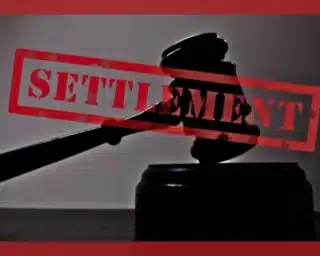A horrific beating death at Circus Circus could result in a finding of liability against the casino for providing inadequate security. The beating, which occurred in Reno, Nevada, resulted in the death of a 38-year-old hotel guest. Hotels and casinos have to protect their guests, including by providing security. When the security is inadequate, the hotels or casinos may be liable to pay damages in wrongful death or personal injury claims to the victims or their families.
Wrongful Death at Circus Circus
On July 19, 2019, police responded to a hotel room at Circus Circus in Reno after being called to perform a welfare check. Inside of the room, they found a 38-year-old California woman unresponsive, bleeding, suffering from head trauma, and unclothed from the waist down. The woman could not be revived by first responders and was pronounced dead at the scene an hour after she was discovered.
The woman’s autopsy report showed that she had multiple facial fractures, a brain injury, asphyxiation, and injuries to her cervix and vaginal wall. Her injuries were deemed to be consistent with someone stomping on her. The 22-year-old man who was charged with murder was arrested the same day on unrelated charges. The police learned that he had met the victim, her sister, and another man outside of the Silver Lake Casino on the sidewalk. The suspect was allegedly homeless and wanting to hang out with someone. The group was seen on surveillance video inside of Circus Circus and the Silver Lake Casino on the casino floor. Before midnight, the victim, her sister, and the other man went to their rooms but did not invite the suspect.
The suspect was seen on surveillance video doing the following things at the following times:
- Riding on the elevator and randomly getting off on 17 floors between midnight and 1 a.m.
- Riding up the elevator with the other man around 1 a.m. and returning to the casino with the other man and the victim’s sister
- Riding up to the 19th floor alone at 1:30 a.m.
- Getting on the elevator and removing bloody tennis shoes at 1:50 a.m.
The bloody shoes were found in the elevator, and there was a bloody footprint in the hallway outside of the victim’s room that matched the shoes.
Inadequate Security Claim
The victim’s husband filed a wrongful death lawsuit through his accident lawyers against Circus Circus and the hotel, alleging inadequate security. The woman had been staying at the hotel with her sister while her husband completed work in Nevada.
Hotels and casinos owe a duty to their guests to keep them relatively safe under personal injury law. As a part of this duty, they must provide adequate security. When someone is seriously injured or killed because the hotel failed to provide adequate security, the hotel may be liable to pay damages to the victim or family. The duty that is owed to patrons by a hotel or casino may be violated when a patron is injured because of the following types of conditions:
- Poor lighting in stairwells
- Failing to warn guests about dangerous conditions
- Failing to warn guests about criminal activity
- Improperly storing items
- Failing to provide adequate security
These types of claims fall under the practice area of tort law known as personal injury law. Property owners like hotels or casinos who derive financial benefits from their guests must determine whether crimes are happening on their premises and take reasonable steps to protect their guests by providing adequate security. Examples of adequate security might include hiring skilled security guards, monitoring elevators, casino floors, and hallways electronically, and other means.
In the case of Circus Circus, the casino and hotel had surveillance video to monitor the elevators. However, the suspect was allowed to ride up and down and get off on different floors without being stopped by security. He also was not stopped from riding up the elevator alone to go to the 19th floor and commit the crime. After the murder, he was able to leave the casino barefoot while leaving his bloody shoes behind.
When casino and hotel patrons are seriously injured or killed in hotels or casinos by third parties, the hotel or casino may be liable to pay damages to the victim or the victim’s family. A personal injury attorney in Las Vegas may file a negligence claim to recover compensation for his or her client’s losses. To prove a negligence claim against a hotel or casino based on inadequate security, the victim or family will need to be able to present evidence that shows that the hotel or casino owed a duty to provide adequate security, that it failed to do so, and that its failure to provide adequate security resulted in the victim’s injury.





